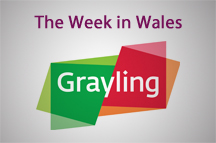.jpg) As this week comes to a close so does the Assembly’s summer term - minus the obligatory appearances at next week’s Royal Welsh Show. But as Wales’ 60 Assembly Members head off for their summer breaks (otherwise known as eight weeks of solid constituency work and local campaigning), they do so in the full knowledge that they have all earnt their time away simply from the abundance of legislation scrutinised in recent months.
As this week comes to a close so does the Assembly’s summer term - minus the obligatory appearances at next week’s Royal Welsh Show. But as Wales’ 60 Assembly Members head off for their summer breaks (otherwise known as eight weeks of solid constituency work and local campaigning), they do so in the full knowledge that they have all earnt their time away simply from the abundance of legislation scrutinised in recent months.
Spring/summer 2015 has proved itself to be another opportunity for the Assembly to explore innovative legislation solutions to long standing problems - and some we didn’t even know existed. In official terms four Acts have already made it through the scrutiny process this year: Higher Education Act; Well-being of Future Generations Act; Violence against Women, Domestic Abuse and Sexual Violence Act; and The Planning Act.
But the Assembly hasn’t stopped there. With under eleven months to go until the next General Election, the Welsh Government is charging ahead with legislation as varied as the Local Government Bill; Environment Bill; Public Health Bill; the potentially ‘historic’ Tax Collection and Management Bill, and several more during the remainder of 2015 alone. And that goes without mentioning the controversial proposals to introduce a minimum unit price for the sale and supply of alcohol, which is being consulted on for the remainder of the year.
 But all of this work - regardless of its clear importance - can get a little dry at times. This is especially true when so many of our dutiful politicians are also busy positioning themselves for the aforementioned election, and yearning for a secure place in the Fifth Assembly beyond.
But all of this work - regardless of its clear importance - can get a little dry at times. This is especially true when so many of our dutiful politicians are also busy positioning themselves for the aforementioned election, and yearning for a secure place in the Fifth Assembly beyond.
In the spirit of ‘once bitten, twice shy’, I’m not going to use this weekly review to make any election predictions in terms of seat numbers - if nothing else, recent months have taught us that polling companies can’t be completely trusted, especially this far out. Nonetheless, it remains interesting to get a sense of what all of this politicking could mean in the months ahead.
Looking first to Welsh Labour, it would be an understatement to say that the party remains in a degree of shock. With no clear direction from London, and the potential to loose some key seats to the Welsh Conservatives on the horizon, it’s understandable that rumours continue to circle in the Bay about what pieces would need to fall into to place next May before significant changes are considered closer to home.
Of course this is a possibility that could also be applied to Plaid Cymru. After a positive election campaign (according to some), the Party is also coming to terms with the fact that, if anything, they actually went a little backwards in May and slipped behind UKIP in overall votes. And this was despite having more national publicity than they could have ever hoped for through the Leaders Debates. Gone are the days that the Party could blame disappointing results on a lack of media coverage.
Before we shift firmly across the ideological divide it’s worth sparing a thought for the exhausted Welsh Liberal Democrats. Saying they paid the price for being in Government doesn’t seem to go far enough, as they lost two thirds of their Welsh seats and slumped well into single figures in terms of vote share. What this means for next year is that they continue to stare into the political abyss, unless the public make a surprise return. Stranger things have happened. However, one can’t help think that a stated desire to hit the “reset dial” and draw a line under the Coalition won’t be enough for some marginal supporters.
 Over on the right of the spectrum, however, Wales has rarely looked brighter. The Welsh Conservatives have gone from looking like a group in the mists of civil war, to one which is beginning to look like it could one day provide the basis of an alternative government. With a well respected new Chief of Staff coming on board over the Summer Recess it’s not unreasonable to suggest that they might be able to firm up some of their recent gains.
Over on the right of the spectrum, however, Wales has rarely looked brighter. The Welsh Conservatives have gone from looking like a group in the mists of civil war, to one which is beginning to look like it could one day provide the basis of an alternative government. With a well respected new Chief of Staff coming on board over the Summer Recess it’s not unreasonable to suggest that they might be able to firm up some of their recent gains.
Finally we have UKIP making a dash for some of the Assembly’s low hanging regional seats - traditionally fought over by the Liberals and the Greens. A strong showing from them also would really shake the Assembly up. With a Labour/Plaid coalition still looking like the most likely outcome, it’s clear that Wales is heading into some really interesting times.














